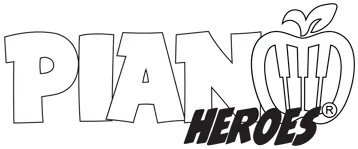Hello and welcome to a series of blog posts exploring the questions piano teachers often ask when they start a piano studio. And one of those questions comes from the new piano teachers a lot. How much should I charge? But before we try to answer the question of price, let’s see how much your craft of piano teaching is actually worth to your students.
Music Superpower
Do you believe in the power of music? You might have heard that besides the pleasure of making and playing music, it has a huge impact on the developing brain. The benefits were proven and continue to fascinate the scientific community. If this is all new to you, go ahead and listen to the following TED-ed talk from Dr. Anita Collins. An educator, researcher, and writer in the field of brain development and music learning.
You should have no doubts now about your magical abilities as a teacher. And there is nothing wrong with charging a reasonably high price for it.
Client and Location
To understand how to price your service right, start with the question of who is paying for it or in other words who is your client. Note that your students in many cases will not be your clients. For the majority of the piano studios, the clients are students’ parents. Their income, education, and availability will matter a lot in their decision to hire you as a piano teacher. Now, where do those parents live?
It is a known fact that people with the same level of income tend to live closer to each other and the housing prices will give you the first clue. What area is your piano studio located in? Once you determine the geographical area of your potential clients, it is time to do some research and scouting of the piano teaching market in this area.
Market Prices
Now, when you know the location, chances are there are other piano studios or teachers working there too. They may have a website, Facebook page or Google business listing with more detailed information and sometimes fees. If required contact those piano teachers to understand better their offering. It will give you an idea of the market prices in the area.
When you start it might be tempting to set your prices low to fill your schedule quickly. Think twice before doing so, as increasing your prices later is possible but never easy. Just like you do not want to be too low on the pricing spectrum, you don’t want to overcharge when you are seeking to fill your schedule quickly. A slightly higher than average price per hour is what you are after.
Price
It is not uncommon to run 30 or 45 min lessons with the beginners. And one of the common mistakes is to charge for the lesson time only. When you, in fact, spend time planning, preparing, researching, printing materials, and doing many other activities. Your price must include all those little things as one flat rate per hour. Make a list of what activities you execute for each and every student and how much time it takes.
Other Charges
It is not uncommon to have one-time charges per season or per year for the registration, materials, recital, books, etc. Make sure to list them all in the studio policy. Charge those separately and always explain the reasons behind those charges. Fees and charges are not static, and it is always a good idea to review them all once a year to be up-to-date with the market and the inflation rate.
If you teach piano to make a living, as most piano teachers do, you might be wondering what is the right price for your craft. This article is not in any way an ultimate and detailed guide on pricing, but it should give you an idea of how to make your prices fair and reasonable. Make money on your piano teaching!
As Eric Branner, the CEO of Fons and also our Twitter follower puts it “Go big!”. There is nothing wrong with charging the living rates!
Awesome. A range of market rates for urban-suburban-rural areas would help. Piano teachers are also generally way underpriced when compared to other highly-skilled jobs.(Trainers, tutors, coaches… plumbers) I encourage folks to go big, charge living rates, love the work?
— Eric Branner (@dilkpants) January 24, 2020

